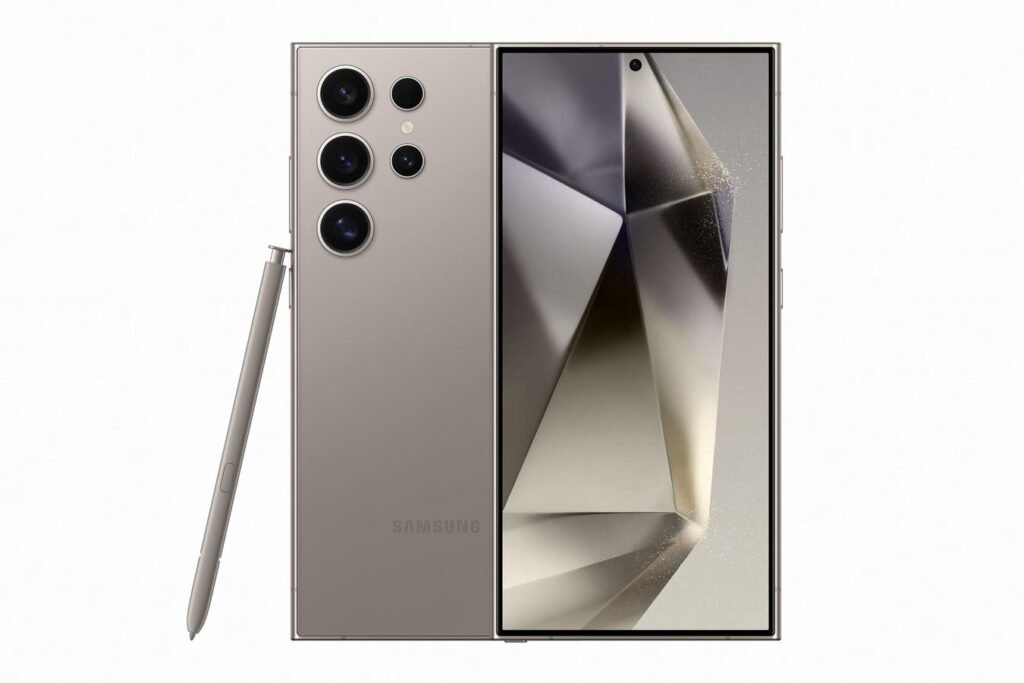Samsung’s brand new Galaxy S24 Ultra.
This story was updated on January 18. Update below.
Supporting your expensive phone with OS updates for many years is, thankfully, fashionable. Samsung joins Google and Apple in promising at least seven generations of Android updates and seven years of security updates for the Galaxy S24.
This is a huge step for the company, which currently offers four years of OS updates for the Galaxy S23 and other select Samsung devices. In 2021 the Korean company offered three years of Android support for its phones, so the new policy is a significant improvement from just a few years ago.
This is welcome news for all Android users because other companies will follow suit. After Samsung announced in 2022 that it would extend its software support level to at least four years, OnePlus matched the policy later that year. The days of promising an Android update for an expensive phone are over. It took the threat of Google’s seven-year promise of parts, security patches and OS updates to get Samsung to act or react, but we got there in the end.
What’s not clear is whether Samsung will back the Galaxy S24 with seven years of parts (I’ve asked), like Google does for the Pixel 8. That’s a key part of Google’s offering when it comes to challenging the iPhone 15, the which is blackened with locked software making it difficult to repair without Apple authorization. We’ll have to wait and see if Samsung has pulled a similar software lock trick with the Galaxy S24 when one of the knife-wielding YouTubers does a teardown.
We also don’t know if Samsung will extend this new policy to other Galaxy phones. It did just that in 2022 by adding more support to existing devices. I’ve asked Samsung if that’s the plan and will update this story once I hear back.
In the fine print of the press release is an important detail to note, which says that “the availability and timing of Android OS upgrades and security updates may vary by device model.” The new update policy may not apply to every Galaxy S24 model or region. We’ll have to see how Samsung expands on this.
Despite the phone’s new AI capabilities and improved hardware, this is quietly the most significant upgrade because it represents real value for money. Your Galaxy S24 should still be alive and kicking in 2031, which shouldn’t be a shocking sentence to read considering the phone costs over $1,000.
All phone manufacturers have been talking about their environmental credentials in recent years. Indeed, Samsung says the S24 series includes more recycled materials in its design and components. But how long the phone lasts is a sticking point for Android phone makers, who have happily been making disposable devices for years. The new information policy is an integral piece of the environmental puzzle that could no longer be ignored.
Update January 18: Samsung didn’t respond to me about how it was able to extend its Android support policy, but an interesting tidbit about the terms and conditions on the Galaxy S24 website (spotted by TechRadar) may provide some insight.
“Galaxy AI features will be provided for free until the end of 2025,” the Terms and Conditions state. This apparently opens up the possibility that the Korean company could charge for some of the AI features it announced yesterday, such as Live Translate and Chat Assist. That may well be the price of that greater support. Samsung may recoup some of the cost of keeping your device up-to-date—and keeping these AI services running—through a regular subscription to certain basic device features.
I brought this up in a recent story Google’s renewed services. The company is in the midst of an aggressive marketing campaign and is running several serious discounts on its Pixel 8 lineup. At the same time it has revamped services like YouTube Premium, Google Podcasts and Assistant—too had a big discount for Play Pass. There’s a good chance we’ll see a paid version of Bard soon, too. The goal is not just to sell people a phone, but to get them as many subscriptions as possible within the Google ecosystem.
Both Google and Samsung have announced seven years of software support for their devices in the same launch cycle, and both are flirting with paywalled AI services. This is a glimpse into the very near future and perhaps an explanation of how these companies can pay for almost a decade of software support.
